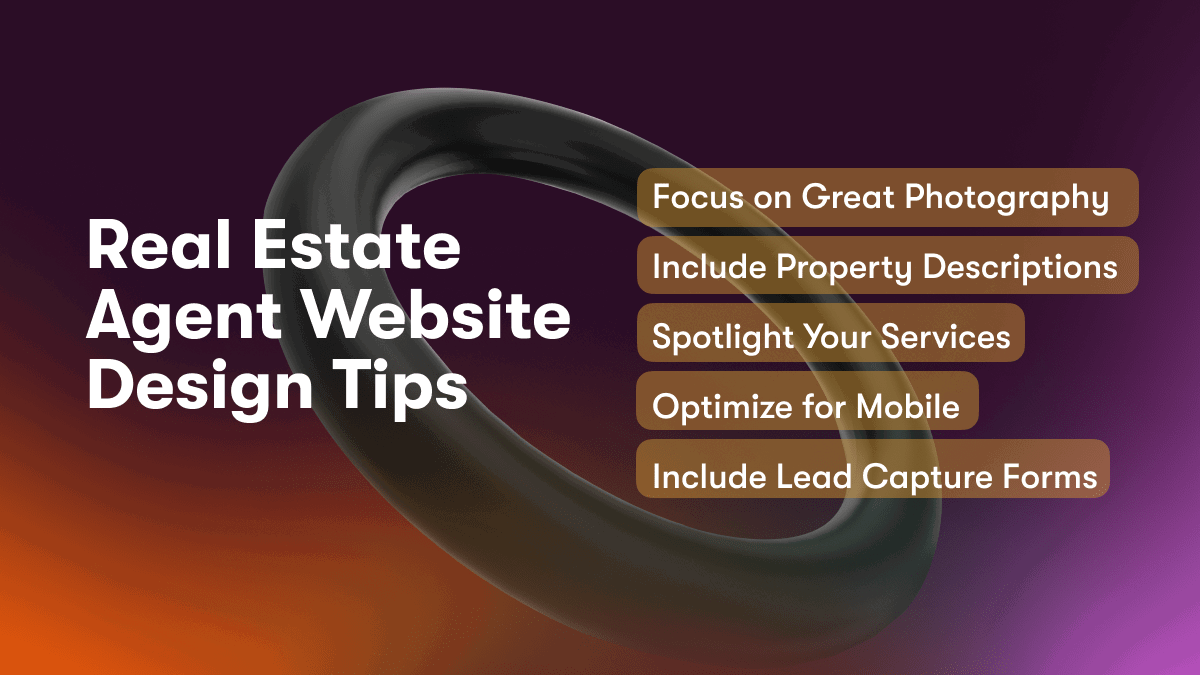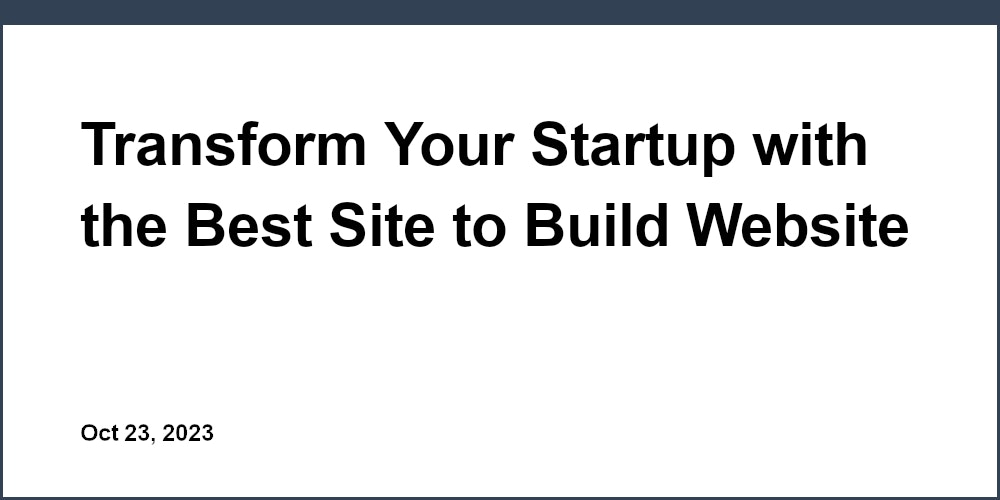As a real estate agent, your online presence is essential. A professionally designed website establishes your credibility, gives potential clients a glimpse of your expertise, and provides a place to showcase property listings. However, building an attractive, user-friendly website requires technical skills and design experience that you may lack. This often means hiring a developer to build your site, which can be expensive and time-consuming. Fortunately, there's an easier solution. With an intuitive drag and drop website builder like Unicorn Platform, you can create a custom real estate website yourself in just a few hours with no coding required.
Why You Need a Professional Real Estate Agent Website Design
As a real estate agent, your website is your digital storefront and a critical component of your marketing strategy. Here are a few reasons why investing in a professional real estate website design is essential:
- Build credibility and trust. A polished, high-quality website establishes you as a serious, professional agent. It shows potential clients you have the skills and knowledge to guide them through the real estate process.
- Improve search engine optimization. A well-designed site with optimized content helps you rank higher in search engines like Google, increasing the chances of being found by motivated home buyers and sellers. Things like page titles, meta descriptions, alt image attributes, and internal linking all factor into your search rankings.
- Enhance user experience. An attractive, easy-to-navigate website keeps visitors engaged and makes them more likely to contact you. Important elements include mobile-responsiveness, logical menu layouts, eye-catching visuals, and simple contact forms.
- Generate high-quality leads. The primary goal of your website is to capture leads from interested visitors. Calls-to-action, lead capture forms, and a prominent contact phone number/email make it easy for potential clients to get in touch.
- Build your online reputation. Your website is an opportunity to highlight your expertise, experience, credentials, testimonials, and track record of success. This helps establish you as a reputable, accomplished agent in the local market.
In summary, a professional real estate website design is a must-have in today’s competitive digital landscape. With the right platform and elements in place, you can create an impactful online presence, reach more high-quality leads, and take your real estate business to the next level.
Key Elements of an Effective Real Estate Agent Website
As a real estate agent, your website is one of the most important tools for promoting your business and reaching new clients. To be effective, your website should include certain key elements:
- Professional and polished design. Your website is often a client’s first impression of you and your business. A clean, modern design with high-quality photos conveys your competence and experience.
- Detailed agent bio and contact information. Help clients get to know you by including a bio highlighting your credentials, experience, qualifications, and background. Prominently display your contact information so clients can easily get in touch.
- Property listings. Showcase current listings through professional photos, videos, and detailed descriptions. Also include a searchable database of your past sales to establish your track record of success.
- Client testimonials. Share reviews and testimonials from happy clients. Their stories and positive experiences will build trust and credibility. Ask clients if you can feature their full name and photo for added impact.
- Lead capture form. Make it easy for visitors to provide their contact information by including lead capture forms throughout your site. Offer a free guide, newsletter, or other resource in exchange for their information.
- Valuable content. Publish useful content like neighborhood guides, market reports, home tips, and FAQs. This demonstrates your knowledge and expertise and gives visitors a reason to return to your site. Content also boosts your search rankings.
- Mobile optimization. Ensure your website is optimized for mobile devices. Since many homebuyers search for real estate on their phones, your site needs to display properly on smaller screens with touch navigation.
With the right elements in place, an effective real estate website can be a game-changer for your business. Following these best practices will establish you as a credible resource and help turn more visitors into clients.
Choose a Real Estate Web Design Services
Hire a Professional Real Estate Web Design Service
When creating your real estate agent website, hiring a professional web design service is highly recommended. They have the expertise and experience to build an effective site that will establish your online presence and attract new clients.
Web design services that specialize in real estate sites understand the key elements required and how to optimize the site for lead generation. They can create an intuitive site architecture with clear calls-to-action that will convert visitors into leads. Professional copywriters will develop compelling content that establishes your credibility and expertise.
- Design services offer various packages at different price points based on your needs and budget. Basic packages may include 5-10 pages to get you started, while more comprehensive ones provide 20 pages or more, blogging capabilities, lead capture forms, and SEO optimization.
- Look for services that use modern web design platforms which easily allow you to make updates to content, images, and text yourself without needing to know how to code. Popular website builders for real estate agents include Placester, Real Estate Webmasters, and BoldLeads.
- Check reviews from current and past clients to determine the quality of service and support. Look for a design firm that will take the time to understand your brand and business goals to create a customized site that reflects your unique value proposition.
- Inquire about options for integrating single property websites, email marketing services, customer relationship management software (CRM), and MLS listing feeds into your site. The more seamless the integration, the more powerful your online marketing efforts will be.
- Don’t forget about mobile-friendly responsive design. With the majority of web traffic now coming from mobile devices, your site needs to display properly on smartphones and tablets. Professional web designers always optimize for responsive design.
By hiring an experienced real estate web design service, you can have an impactful, lead-generating site up and running quickly. With their expertise, you'll gain valuable time to focus on your clients and business growth. A professional site is a worthwhile investment that will serve your business well for years to come.

Build Your Landing Page with Unicorn Platform
To create an effective yet straightforward real estate agent website, utilize the Unicorn Platform landing page builder. This no-code tool provides an intuitive drag and drop interface to design and launch a professional landing page in minutes.
Select a Template
Choose from dozens of pre-made landing page templates tailored to real estate businesses. Templates offer an esthetically pleasing layout, coherent styling, and logical page sections. Select a template that aligns with your brand and the specific goal of your landing page, such as promoting a new property listing or highlighting your real estate services.
Add Your Content
Drag and drop page sections like headers, images, text blocks, contact forms, and calls-to-action onto your template. Input your business and listing details, photos, contact information, and any persuasive copy or promotions you wish to include. The Unicorn Platform provides pre-written content suggestions and examples to help inspire your messaging. Keep text concise and scannable for the best user experience.
Customize the Design
Adjust colors, fonts, spacing, and other design elements to match your brand. Change the size, alignment, and order of sections and content blocks. Add custom CSS or HTML code if desired. Unicorn Platform’s intuitive interface allows you to make major design changes quickly without technical skills.
Preview and Launch
Preview how your landing page will appear on both desktop and mobile devices. Make any final changes before launching your page. Your landing page will be mobile-responsive and optimized for search engines like Google upon launch.
Track Performance
Review key metrics like page views, time on page, and form submissions to see how your landing page is performing. Make data-driven changes to improve conversion rates and achieve your goals. The user-friendly Unicorn Platform dashboard provides an overview of how people are interacting with your landing page.
With an easy to use landing page builder like Unicorn Platform, real estate agents can create a professional yet straightforward website and focus on what really matters—connecting clients to their dream properties. Let the platform do the heavy lifting so you can spend less time worrying about web design and more time closing deals. And if you're looking for the best property website design tool, don't forget to check out the blog post on The Best Property Website Design Tool: Unicorn Platform.

Real Estate Agent Website Design Tips
Focus on Great Photography
High-quality photos are essential for any real estate website. Invest in professional photography to showcase listings and properties in the best light. Photos should be well-lit, high resolution, and capture the most visually appealing areas of each space.
Include Property Descriptions
Brief but compelling property descriptions with details like square footage, number of rooms, amenities, neighborhood info, and your recommended uses for the space will give visitors a sense of what each listing offers. Mention proximity to schools, public transit, shopping, dining, and recreational activities.
Spotlight Your Services
Highlight your experience, credentials, awards, and customer service philosophy to build credibility and trust. Explain your unique value proposition and the benefits of working with you. Share positive reviews and testimonials from satisfied clients.
Optimize for Mobile
With more and more people accessing real estate websites on their smartphones and tablets, your site must be fully responsive and optimized for mobile devices. Use a simple, uncluttered design with large buttons and fonts that are easy to read and navigate on smaller screens.
Include Lead Capture Forms
Add prominently placed contact forms and lead capture forms so visitors can easily get in touch and request more details on properties that interest them. Gather key information like name, email, phone number, desired property specs, and move-in timeline so you can follow up accordingly.
An attractive yet user-friendly real estate agent website with a professional design, high-quality content, and tools to generate and capture leads will establish your online presence and help grow your business. By following these essential tips, you can create a site that inspires and informs visitors while also driving more inquiries and sales.
Integrate a Blog to Build Authority
To establish your real estate website as an authority in the industry and local market, integrate a blog. A blog allows you to frequently publish helpful content for your readers, which builds trust and positions you as a knowledgeable resource.
Choose Relevant Topics
Focus your blog posts on subjects that would interest potential and current clients, such as:
- Local real estate market updates and trends
- Home buying and selling tips
- Mortgage information
- Community news and events
Post Consistently
Aim for publishing one or two posts per week to keep your content fresh and increase search engine optimization (SEO). Some suggestions for an effective posting schedule include:
- Market Monday: Discuss the latest real estate news and statistics in your local market.
- Tip Tuesday: Provide practical advice for home buyers and sellers.
- Community Wednesday: Highlight neighborhood events, amenities, and happenings.
Include Calls to Action
At the end of each blog post, include a call to action (CTA) inviting readers to contact you for their real estate needs. For example, "If you have any other questions about [topic], don't hesitate to reach out. I'm here to help you with all your real estate needs." Provide your contact information like phone number, email, and social media links.
Promote Your Blog
Share new blog posts on your social media profiles and email newsletter to increase traffic. You can also suggest relevant posts in listings, buyer and seller presentations, and email communication. The more people that read your blog, the greater impact it will have on establishing you as an authority.
Track Performance
Use Google Analytics to monitor metrics like pageviews, time on page, and bounce rate. See which topics and posting schedules resonate most with your readers. Make changes as needed to optimize your blog's authority and lead generation.
With a consistent blogging strategy focused on educating and helping your readers, you can build a reputation as the go-to real estate expert in your community. An authoritative blog is a valuable asset for any real estate business.
Make Your Contact Information Easy to Find
As a real estate agent, having an informative yet easy-to-navigate website is key to connecting with potential clients and showcasing your services. One of the most important elements is making your contact information highly visible and accessible.
Prominently Display Your Contact Details
Your name, phone number, email address, and office address should be prominently displayed at the top of your website for maximum visibility. Repeat this information in the footer of each page as well for easy access. You want to make it as straightforward as possible for visitors to get in touch with you.
Include Social Media Links
In addition to traditional contact methods, provide links to your professional social media profiles like LinkedIn and Facebook. Many clients appreciate being able to connect with their agent through various channels. Just be sure to keep your social media profiles up to date and post regularly to build your online presence.
Offer a Contact Form
A contact or inquiry form on your website allows visitors to send you a message directly from the site. Be sure to include fields for name, email address, phone number, desired property type, budget, timeline, and a message section. Respond to all contact form submissions within 24 hours to provide good customer service.
List Your Office Address Prominently
While much communication may be done digitally or over the phone, some clients will want to meet with you in person. Display your office address, hours of operation, and a Google Map showing its location. For an extra helpful touch, include photos of your office’s exterior and reception area.
Share Testimonials and Reviews
Don’t just tell visitors you provide great service—show them. Include client testimonials and reviews on your website. Positive reviews from past clients are very persuasive for potential new clients. Ask happy clients if you can quote their reviews on your website and Google Business listing.
Providing multiple, easy ways for people to contact you and build confidence in your services through social proof like reviews are impactful ways to turn website visitors into real estate clients. Keep your information up to date and be responsive to all inquiries to deliver the best experience possible. Your accessibility and customer service can set you apart in a competitive market.
FAQs About Real Estate Agent Website Design
What do real estate agents need to know about website design?
As a real estate agent, your website is one of the most important tools for attracting new clients and building your business. A well-designed website can establish your credibility, highlight your experience, and help convert visitors into leads. However, real estate web design can seem complicated if you’re not technically inclined. Here are some key things to keep in mind:
Keep it simple but professional
Your website should be clean, minimal, and easy to navigate. Focus on a simple, polished design that lets your expertise and services shine through. Include details about your experience, credentials, and specialties. Highlight properties you have sold and showcase reviews or testimonials from happy clients.
Optimize for mobile
Most people will first view your website on their phone, so a responsive or mobile-optimized design is crucial. Your site should automatically resize and reformat to fit any screen, whether desktop, tablet, or mobile. All content and buttons should be easy to read and tap on a smaller screen.
Include lead capture forms
Have prominent contact or lead capture forms above the fold on your homepage. Make it easy for visitors to reach out, ask questions or schedule a consultation. Capture information like name, email, phone number, and a message. Respond promptly to all leads to start building relationships.
Blog regularly
A blog is a great way to establish yourself as a neighborhood expert, attract organic traffic, and keep visitors engaged on your site. Aim for posting at least once a week about local market updates, home selling tips, area spotlights, and community news. Keep posts around 500 words and be sure to promote new content on social media.
Track analytics
Analyzing how people interact with your website will help you make improvements to increase traffic and leads. Use a tool like Google Analytics to see metrics such as page views, time on site, bounce rate, and the source of your visitors. Check reports regularly and make changes to your content, design or marketing strategy based on the insights.
Continually optimizing your real estate website and digital marketing strategy will help generate more high-quality leads so you can focus on what you do best—helping clients buy and sell homes. Let me know if you have any other questions!
Conclusion
As a real estate agent, having an effective web presence is critical to building your business and reaching potential clients. With a simple yet professional website, you can establish your credibility, showcase your listings, and make it easy for people to contact you. While designing and building a website may seem daunting, tools like Unicorn Platform make the process simple with an easy to use drag and drop interface and designer templates tailored for real estate agents. In just a short amount of time, you can have a custom website up and running to help you connect with more clients and grow your real estate business. The opportunities are out there, you just need the right platform to help you reach them.



